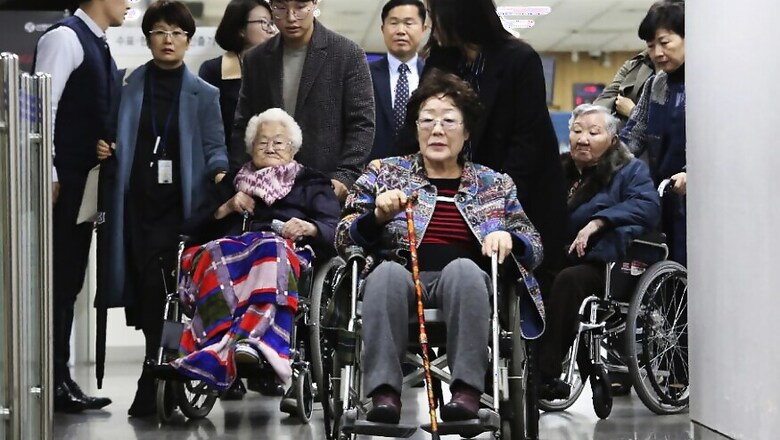
views
Seoul: South Korea's Constitutional Court on Friday rejected a petition seeking the repeal of a 2015 deal with Japan settling a bitter dispute over Korean women enslaved for sex by the Japanese military during World War II.
A decision to spike the largely stalled deal could have complicated efforts by the two countries to resolve separate thorny trade and history disputes, which recently plunged their ties to the lowest point in decades.
Friday's ruling was in response to a petition by former sex slaves and their families who say the deal, which was made without their consent, undermined their dignity and infringed on their rights to participate in negotiations and seek fuller Japanese government compensation.
In a unanimous decision, the nine-judge panel ruled that the deal was a non-binding political agreement that didn't affect the victims' legal rights, such as the ability to seek official Japanese compensation.
It said the agreement did not receive parliamentary approval or Cabinet council deliberations in either country, necessary steps to make it a treaty. The court also said the deal was vague on the detailed steps required of each country and the consequences they would face if they failed to implement them.
The issue of sex slaves, euphemistically called "comfort women," has been a major source of friction between the two countries, both staunch US allies. Historians say tens of thousands of Korean women were lured or forced into sexual slavery at Japanese military-run brothels when the Korean Peninsula was under Japanese colonial rule in 1910-45.
Under the 2015 deal, Japan offered a new apology over the wartime slavery and pledged to finance a Seoul-based foundation to support former Korean sex slaves.
In return, South Korea agreed to stop criticizing Japan on the issue on the world stage and to try to resolve Japanese grievances over a life-size statue of a girl representing a former sex slave that sits in front of the Japanese Embassy in Seoul.
After taking office in 2017, current South Korean President Moon Jae-in called the deal seriously flawed and virtually dissolved the aid foundation. The government of Japanese Prime Minister Shinzo Abe, which signed the deal with Moon's predecessor, criticized South Korea for not implementing the deal.


















Comments
0 comment